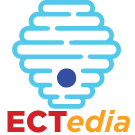Self-Management Principle: Difference between revisions
No edit summary |
Yoavbergner (talk | contribs) No edit summary Tag: Manual revert |
||
| (4 intermediate revisions by 3 users not shown) | |||
| Line 2: | Line 2: | ||
Cognitive Load Theory (CLT) and Cognitive Theory of Multimedia Learning (CTML) provide empirically supported pedagogical solutions to the problem of cognitive overload that often occurs during learning from multimedia materials. Until recently, these solutions relied entirely on teachers to create high-quality learning materials and learners to access them. In practice, however, learners often have to deal with digital and print multimedia learning materials that were not designed with cognitive load in mind. The principles of self-management emerge from research using the learner's vantage point and are based on empowering learners to manage their own cognitive load by applying CLT or CTML principles themselves. | Cognitive Load Theory (CLT) and Cognitive Theory of Multimedia Learning (CTML) provide empirically supported pedagogical solutions to the problem of cognitive overload that often occurs during learning from multimedia materials. Until recently, these solutions relied entirely on teachers to create high-quality learning materials and learners to access them. In practice, however, learners often have to deal with digital and print multimedia learning materials that were not designed with cognitive load in mind. The principles of self-management emerge from research using the learner's vantage point and are based on empowering learners to manage their own cognitive load by applying CLT or CTML principles themselves. | ||
Self-management encompasses many things, such as the ability to effectively manage one's emotions, thoughts, and behaviors in different situations. These abilities include managing stress, delaying gratification, motivating oneself, and setting and achieving personal work and academic goals. Students with strong self-management skills can prepare well before class, pay attention during class, follow the teacher's instructions, leave others talking, and work independently. | Self-management encompasses many things, such as the ability to effectively manage one's emotions, thoughts, and behaviors in different situations. These abilities include managing stress, delaying gratification, motivating oneself, and setting and achieving personal work and academic goals. Students with strong self-management skills can prepare well before class, pay attention during class, follow the teacher's instructions, leave others talking, and work independently.. | ||
''The self-management principle is a recent development in cognitive load theory that offers a novel approach to instructional support of multimedia learning. The self-management principle holds that learners who are taught to apply CLT principles themselves to manage their own cognitive load are better equipped to learn from non-compliant CLT instructional materials than learners who are not taught these principles and, rather, are used to learning from materials in which their cognitive load is instructor-managed. Given that working memory is very limited in both capacity and duration, the management of the cognitive load that instructional materials impose on learners is at the core of CLT.'' | |||
=='''Evidence'''== | =='''Evidence'''== | ||
Latest revision as of 12:29, 23 December 2022
Overview[edit | edit source]
Cognitive Load Theory (CLT) and Cognitive Theory of Multimedia Learning (CTML) provide empirically supported pedagogical solutions to the problem of cognitive overload that often occurs during learning from multimedia materials. Until recently, these solutions relied entirely on teachers to create high-quality learning materials and learners to access them. In practice, however, learners often have to deal with digital and print multimedia learning materials that were not designed with cognitive load in mind. The principles of self-management emerge from research using the learner's vantage point and are based on empowering learners to manage their own cognitive load by applying CLT or CTML principles themselves.
Self-management encompasses many things, such as the ability to effectively manage one's emotions, thoughts, and behaviors in different situations. These abilities include managing stress, delaying gratification, motivating oneself, and setting and achieving personal work and academic goals. Students with strong self-management skills can prepare well before class, pay attention during class, follow the teacher's instructions, leave others talking, and work independently..
The self-management principle is a recent development in cognitive load theory that offers a novel approach to instructional support of multimedia learning. The self-management principle holds that learners who are taught to apply CLT principles themselves to manage their own cognitive load are better equipped to learn from non-compliant CLT instructional materials than learners who are not taught these principles and, rather, are used to learning from materials in which their cognitive load is instructor-managed. Given that working memory is very limited in both capacity and duration, the management of the cognitive load that instructional materials impose on learners is at the core of CLT.
